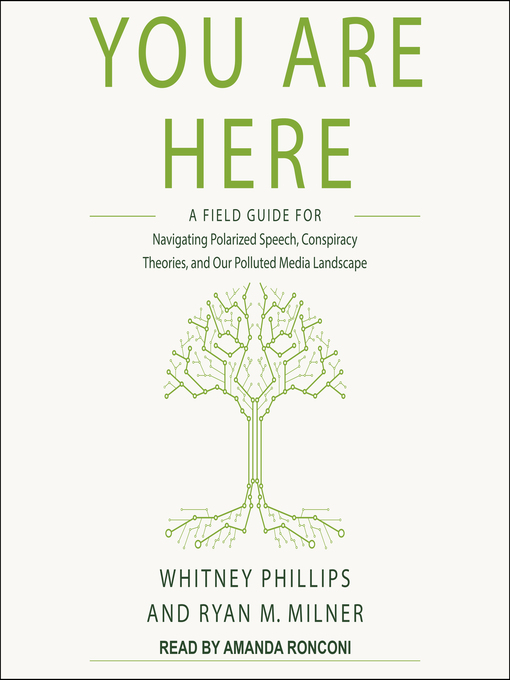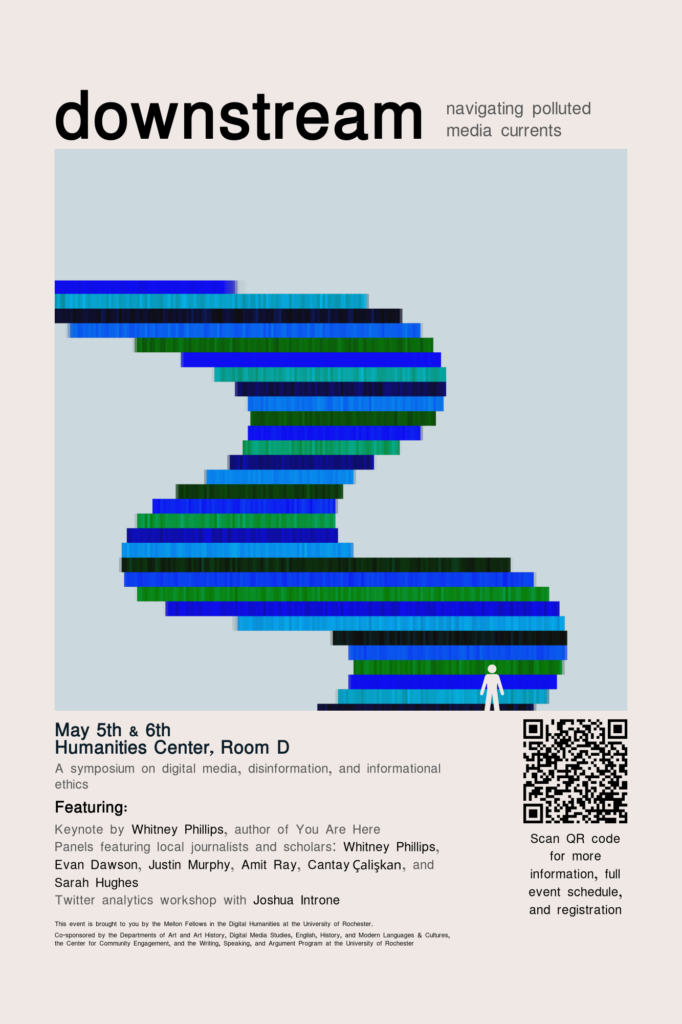A symposium organized by the Mellon Fellows in the Digital Humanities at the University of Rochester. Co-sponsored by the Departments of Art and Art History, Digital Media Studies, English, History, and Modern Languages & Cultures, the Center for Community Engagement, and the Writing, Speaking, and Argument Program at the University of Rochester
*All public events were held in Conference Room D, Humanities Center, 202 Rush Rhees Library
Downstream Symposium

Whitney Phillips and Ryan Milner’s 2020 book, You Are Here, offers an ecological framework for the understanding of digital media, emphasizing their interconnectedness and the ease by which “pollution” spreads across networks and communities. Noting the many historical and structural factors that led us here, Phillips and Milner argue that it’s now the users ourselves who must take an informed, ethical approach to our online activities and the effects they might have downstream.
Drawing inspiration from Phillips and Milner’s ecological metaphor for our current media landscape, the Downstream symposium brings together humanists, social scientists, and journalists to discuss this moment.
In the introduction to You Are Here, Phillips and Milner write: “The polluted-information frame allows us to table the question of intent and focus instead on how the pollution spreads, why it was allowed to spread, and what impact the pollution has both at the initial waste site and, later, downstream.” (5)
“Polluted information is as damaging as it is perfectly calibrated to our contemporary information ecosystem. It thrives when technological and economic systems function at peak efficiency. It thrives when platforms maximize user engagement. It thrives when publications pursue clicks. It thrives when everyday people do the clicking. It thrives when everything is working well—at least working well for some.” (You Are Here, 10)
While events like January 6 or the spread of conspiracy theories on COVID-19 have made our interconnectedness more apparent, the current situation is only an intensification of larger, systemic problems. After all, Phillips and Milner argue, “efficient systems have long yielded catastrophic outcomes.” Piecemeal solutions are not only ineffective, the authors contend, they also often exacerbate harm. The massively profitable corporations that own these social media platforms push automated moderation tools, promising to “innovate” their way out of the problem. Like the extractive industries’ wanton destruction of the planet’s ecology, their profits are contingent on the continued and increased circulation of these informational currents, whatever damage is done to the informational ecosystems in which we live.
The Downstream symposium is a gathering to focus on, and facilitate conversation about, media pollution as a problem that requires radical reformations to the way information flows. To do so, we must speculate on solutions while simultaneously attempting to “make sense” of the cacophonous and rapidly transforming maelstrom of information. The difficulty of this task is precisely what makes it absolutely necessary, because in the end, we’re all downstream, together.

